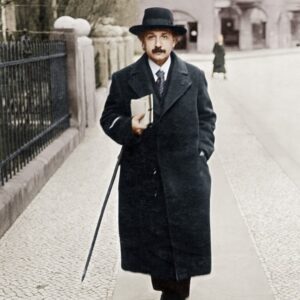Imperial College London Studies Mind-boggling Quantum Technology for National Security
National Security in a Quantum World
Excerpts and salient points ~
+ Quantum computing is probably the most widely discussed quantum technology, and whilst there have been massive strides made over the last decade or so, most predictions suggest we are still 10-15 years away from seeing this on a large-scale. Quantum computers – whenever they do come – will pose a serious threat to the cryptographic systems which underpin much of our current computer security. Experts at the University of Waterloo have calculated that there is a 1 in 7 chance of these crypto primitives being affected by quantum attacks in 2026, and a 1 in 2 chance by 2031.
Imperial College London’s security institute recently hosted an event on how quantum technology will impact national security.
+ Ghost imaging is another quantum technology which allows the visualisation of objects outside of the field of view. This relies on the slightly mind-boggling concept of quantum entanglement to build an image from photons which never interact with the object being imaged. Light is passed through a carefully chosen crystal with the right nonlinear optical properties which will split some of the photons into two ‘entangled’ daughter photons. One of the daughter photons is directed towards the object to be imaged, and the other is directed towards the sensor doing the imaging. The entangled photons have quantum states which are intrinsically linked and measurable, allowing the properties of the daughter that hits the object to be deducted from the other daughter that hits the sensor, ultimately allowing an image to be constructed. The military and security applications for these imaging technologies are quite obvious, but they can also be applied to driverless cars and emergency rescue, to name only a couple of examples.
+ Quantum sensing can also be used for navigation, as Dr Indranil Dutta, Senior Postdoctoral Researcher at Imperial College London, showed us. Most navigation relies on Global Navigation Satellite Systems such as GPS. However, these can be locally jammed by inexpensive equipment, can be blocked by large structures, and can suffer global blackouts as shown by the recent malfunction in the EU’s Galileo system. Indranil is part of a team developing a device which measures inertia to plot changes in a navigation path. It is much like an accelerometer, however current accelerometers which are found in mobile phones for example require an external reference to maintain accuracy over a long distance. The quantum accelerometer does not rely on external signals and therefore cannot be jammed or blocked.
Source: Imperial College London. Duncan Swinscow-Hall, National Security in a Quantum World…
Content may have been edited for style and clarity.

